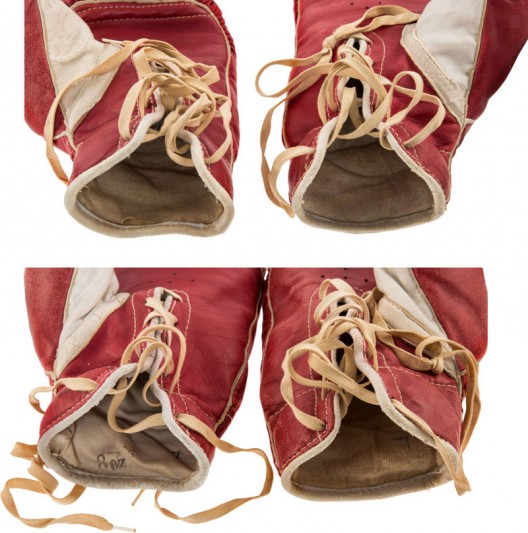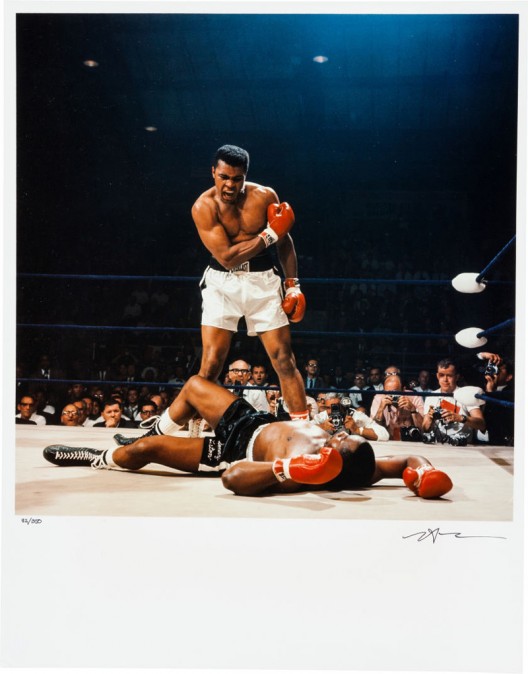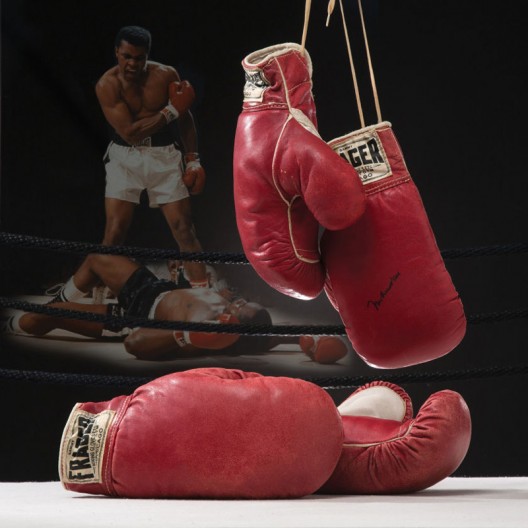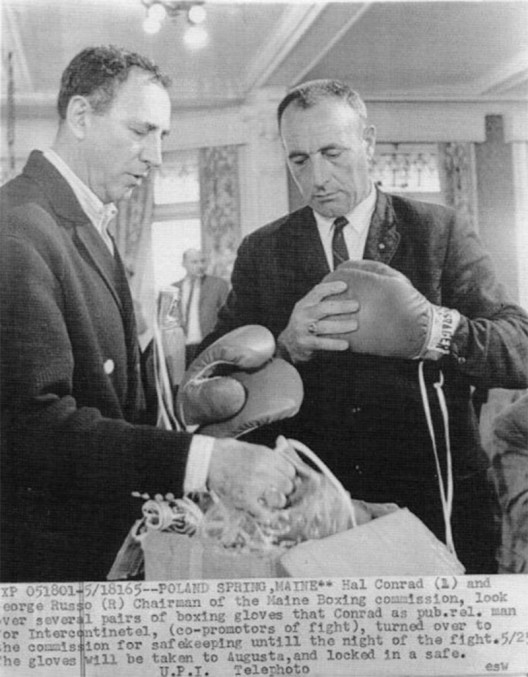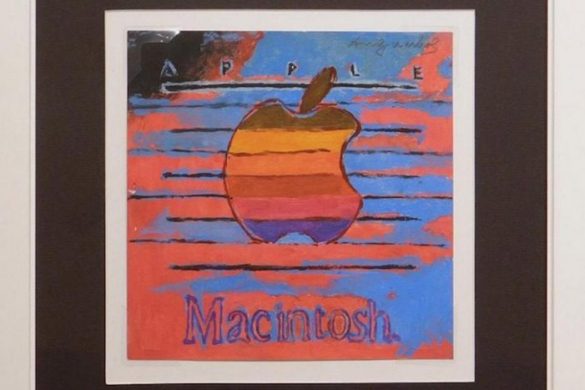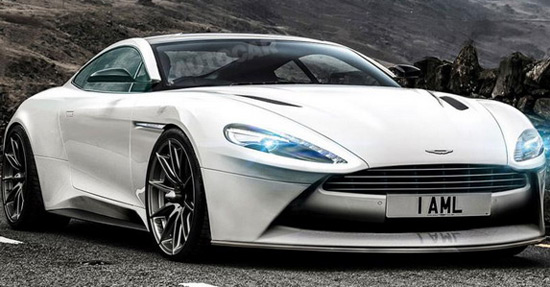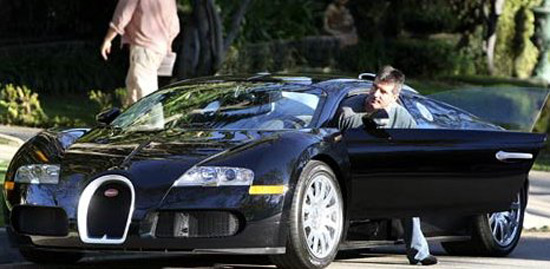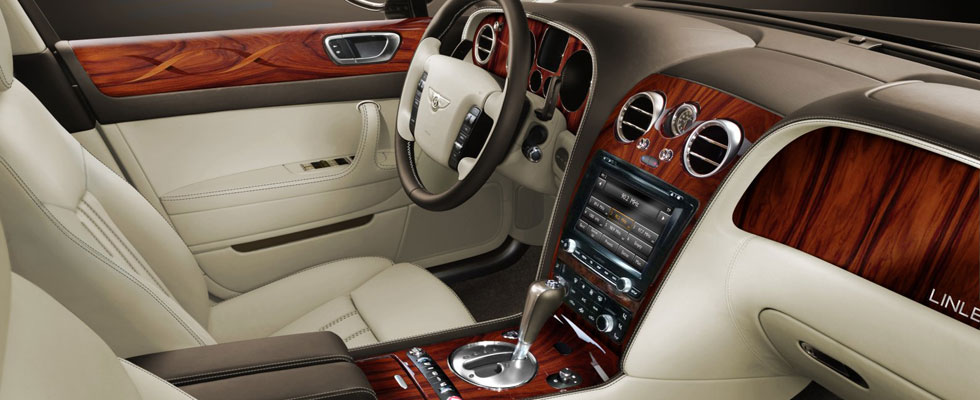Just months before the 50th anniversary of the heavyweight rematch between Muhammad Ali and Sonny Liston – the most controversial sports event in history, boxing fans have a chance to own a piece of one of the most hotly debated title fights of all time. The gloves worn by both Muhammad Ali and Sonny Liston in the famous May 25, 1965 “Phantom Punch” bout in Lewiston, ME, will be offered as a set on Feb. 21, 2014, in a high-end New York sports auction. The starting bid is $500,000.
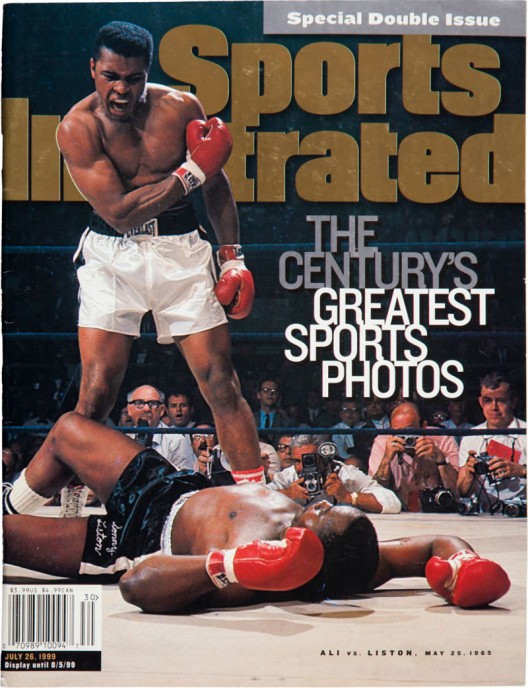
The gloves have been consigned to auction by Los Angeles collector Seth Ersoff, who acquired the pair from the family of the boxing commissioner for the state of Maine in 1965, who seized the gloves after the bout’s scandalous end – Ali’s “Phantom Punch” – just under two minutes into the first round.
Only 2,434 fans were witness to the event-the smallest audience in Heavyweight Championship history and the continued existence of the gloves was unknown to the larger collecting world until a few years ago, when Ersoff reported his tale of ownership. The provenance, as documented in sworn affidavits and a letter from Ali himself, is rock solid:
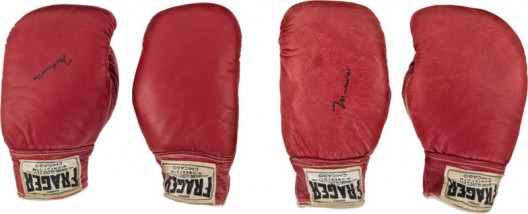
“In 1965, my uncle… was the boxing commissioner for the State of Maine,” writes a family member in an affidavit accompanying the glove. “As such, (he) was the person with authority over the heavyweight boxing championship fight between Muhammad Ali and Sonny Liston, which took place in Lewiston, Maine on May 25, 1965. The Ali-Liston fight was very controversial because of the knock0ut which Liston suffered in the first round. As a result of the controversy… with the authority vested in him by the State of Maine as the State Boxing Commissioner, (he) seized the boxing gloves worn by both Muhammad Ali and Sonny Liston.”
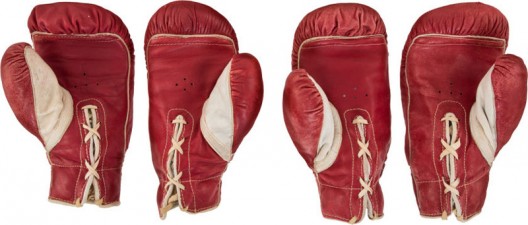
The controversy lingered for quite some time, with Ali emerging in time as a cherished world figure and with Liston dying ignominiously, alone, in the waning days of 1970. With the Golden Anniversary, and the auctioning of these gloves, we’re given a chance to gaze back on what was clearly, with the hindsight of history, a seminal American moment.

